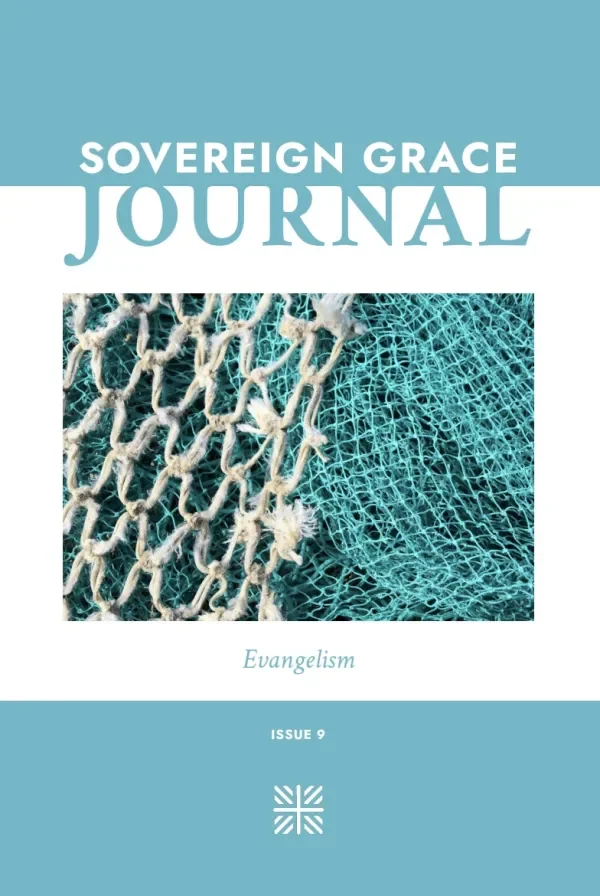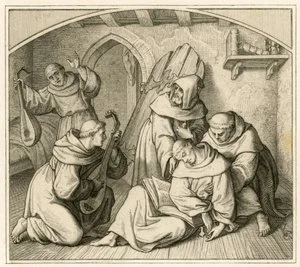In our text today, we find a sobering explanation for our grave situation. Today’s passage is part of a larger argument in Ch. 1-3 where Paul tells the painful story of humanity. Below is an outline summary of the sermon for your further study and deeper reflection.
SERIES: Romans: The Power of God in the Gospel of Christ
TEXT: Romans 1:18-32
TITLE: A Sobering Explanation for a Grave Situation
PREACHER: Derek Overstreet
POINTS:
I. We Suppress the Truth of God
II. We Serve the Idol of Self
III. We Live in Our Own Misery
SERMON EXCERPTS:
All quotes and text emphasis are taken directly from the pastor’s notes.
”Why is the world the way it is today? If you were asked that question, what would your explanation be?”
“In our text today, we find a sobering explanation for our grave situation. Today’s passage is part of a larger argument in Ch. 1-3 where Paul tells the painful story of humanity.”
“Beginning in 18, Paul says, Let me show why we are so desperate for the gospel. What we find is horrifying. Think about that one phone call you never want to get—the bad news of today’s text is infinitely worse. It demonstrates humanity's downward spiral into immorality, darkness, misery, and self-ruin.”
“Paul begins by saying—The wrath of God (His holy hatred for sin and hostility toward sinners) is presently being revealed against all ungodliness (our failure to acknowledge and love God as the center of everything) and unrighteousness (our failure to treat others with love, justice, and compassion). By this unrighteousness, we suppress the truth.”
“God has made known His power and majesty, not in a saving way; we find that in the gospel of Christ revealed in the Word of God. But God has made known His power and majesty, not cryptically but clearly, in creation. Like the words of a song reveal something about the songwriter, creation reveals the glory, majesty, and power of God.”
“But in our rebellion, we suppress what has been made clear to every human being—the truth of God’s glorious existence. In our rebellion and unbelief, we push down, we try to restrain and keep it out of sight so it doesn’t bear on our lives. Suppressing the truth of God is living like we don’t know what we do know because we don’t want what we know to bear on our lives.”
“We know God exists. We know we deserve his judgment. Humanity knows. God’s existence. His power. His glory. We know! But we suppress what we know in our minds, hearts, and with our lives. So, as 20 says—We are without excuse.”
“Here’s the tragedy. The moment we suppress the truth about God, we’ve lost everything. Suppressing the truth about God inevitably leads to suppressing the truth about self and sin, which in turn leads to suppressing the truth about the gospel, which leads to suppressing the truth about true love, joy, hope, and peace. Here’s the truth: We all suppress truth in some way. And that suppression leads to a man-centered idolatry.”
ILLUSTRATION: Importance of the local church—We need each other!
“The keyword here is exchange. Paul uses it twice. It signals a significant and disastrous disordering of God’s design for humanity.”
“Herein lies the core problem for humankind—the sin of Idolatry. God created us as worshippers. Worship is in our DNA. The question isn’t, "Do I worship?" It’s Who or what do I worship? You might not have trinkets, images, and statues around your home, but you have a heart, which, in the words of John Calvin, is a perpetual idol factory. Someone said: The problem is not that we are able to make idols; the problem is that we automatically make idols.”
“The truth is God created us to REVEAL and REFLECT His glory upward (Genesis 1:26—we were made in the image of God). Instead, we EXCHANGE His glory by focusing our worship inward and downward to creation, as it says in 25. This is always the result of suppressing the truth about God—Idolatry. Instead of giving God His rightful place in our hearts, we don’t honor him with our lives. We don’t live gratefully before Him as the One to whom we owe all things. Functionally, we live for power, acceptance, and respect. We put people, possessions, and profits at the center of our hearts.”
“That’s what idolatry is: MY, MY, MY. At the heart of any idol is the idol of self. Instead of living with God at the center, we place ourselves there. We put ourselves on the throne and build our lives around what we want. That’s the lie and the EXCHANGE here—we are autonomous and worthy of worship.”
“Exchange the God of Psalm 8—for what? The cure is not get rid of stuff, it’s pushing upward and inward into Christ and watch your idols fade in comparison to the glory and wonder you see.”
“Here’s what’s crazy: 21-22 says, we feel pretty good about ourselves. We think we’re wise, but we’re not. It’s a lie. It’s foolishness. It’s futility. It’s sin. And, it’s the pathway to self-ruin and endless misery.”
“Three times in our text (24, 26, 28), Paul says that God gave them over. The wrath of God is being revealed by allowing people to live as they wish. God removes His restraining grace from their lives and says—Have at it!“
“What that looks like is laid out in 26-31. First, Paul says, God gave them over to the misery of dishonorable passions.”
“There are fewer hot-button topics today, not just in society, but in the church, such as homosexuality. As Christians, we need to think Christianly about the matter:
1. Homosexuality transcends politics—it’s theological.
2. As Christians, we are called to engage with mercy, compassion, and patience.
3. The gospel is our only hope because it offers complete forgiveness for any form of sexual immorality.
4. In our compassion, we must never step off the authority of Scripture. It’s God’s final word on the matter.”
“Irrespective of all the voices weighing in with their twisted conclusions of passages like this one, God says that homosexuality is an expression of His wrath being poured out on sinners. Sin has profoundly distorted and perverted God’s gift of sex, meant to be between a man and a woman who have been united in marriage by God. That’s God’s created order. But Paul says we have exchanged God’s glory in sexual relationships for a lie that there is something better.”
“Sexual immorality is a foolish and futile abandonment of God’s gift of the joy and pleasure of sex. No matter how natural it feels to you, homosexuality is not natural. A woman having sexual relations with a woman and a man having sexual relations with a man is not how God intended nor intends it. As it says at the end of 27, it is shameless and self-destructive. We know it, and we feel it.”
“NOTE: If you are personally struggling with your sexuality or know someone who is, and you just don’t know where to begin with them, see a pastor.”
“Second, God gives them up to the misery of a debased mind—read 28-31. Paul names 21 sins in these verses. The list isn’t exhaustive; it’s representative. And it’s sobering.”
“The picture here is moral chaos. I’m reminded of the Book of Judges—And everyone did what was right in their own eyes. 26-31 is a picture of what 18-25 looks like. When we suppress God, exchanging His glory for our own by placing ourselves at the center of our lives, this is what we get—a debased mind that acts and treats others however they please. And notice 32—not only do they commit these sins, but they give approval to those who join them.”
“That’s what is happening in our world today. The wrath of God is being revealed in this world, in our country, in our city, on the NW and East side, by the fact that God is giving people over to their sin.”
“This list should remind us that we are all guilty. Paul’s purpose here is not to point the finger at a particular kind of sin or sinner, as we will see in Ch 2, we all have our place in Romans 1:18-32. If you didn’t find yourself in this list, go back to point 1 because you are guilty of suppressing truth. Apart from Christ, we would be left, like the rest of mankind, to live in the misery of our rebellion and idolatry.”
“Friends, Romans 1:18-32 is really, really bad news. But thank God it’s not the last word. While the wrath of God is presently being revealed against all ungodliness and unrighteousness, and it will be revealed on Judgement Day (2:5), the most profound expression of God’s wrath was already been revealed 2000 years ago on a cross.”
“In 23/25, Paul talks about an exchange—We exchange the glory of God for the glory of self. As great as the implications of our evil exchange, there is an even greater exchange—the greatest of exchanges! Amid all the ungodliness and unrighteousness, springs forth the righteousness of God in Jesus Christ for salvation.”
“Jesus absorbed the full wrath of God for our sins. The one who knew no sin became sin for us, and God judged Jesus for our sin so that we would no longer be un under God’s wrath. Jesus takes our sin and punishment, and we receive his righteousness and the mercy and love of God. That is the greatest of all transactions, the GREAT EXCHANGE that changes everything.”
“The gospel proves that while our sin is great, God’s mercy is greater. We no longer live under the wrath of God because, in the gospel that reveals the righteousness of Christ exchanged for our unrighteousness, our story is only forgiveness, grace, mercy, love, and hope in life and death.”
“There are two kinds of people here today—those who need Jesus and those who need who Jesus.”
“Here’s the point: A grave situation demands a glorious solution, and we have graciously been given one in the gospel of Jesus Christ, the power for salvation for all who believe.”
ADDITIONAL SCRIPTURE:
Psalm 119:1-2
Isaiah 6:3
Acts 14:17
QUOTES:
Kent Hughes - “The logic here is so clear: first a suppression of the majestic revelation of God, then a perversion to a man-centered idolatry, and finally a perversion of man himself
C.S. Lewis- “The lost enjoy forever the horrible freedom they have demanded and are therefore self-enslaved.”
Alan Johnson - “In the end, their humanism, or man-centeredness, results in the dehumanization of each other.”
SCRIPTURE MEMORIZATION:
Romans 1:16-17
SONGS FROM THIS SUNDAY:
He Is Our God
Our Only Hope Is You
Scripture Reading: Titus 3:3-7
His Mercy Is More
The Steadfast Love of Christ
Before The Throne Of God Above
NEXT WEEK’S PASSAGE:
Romans 2:1-11
THE BOOK OF THE QUARTER:


















